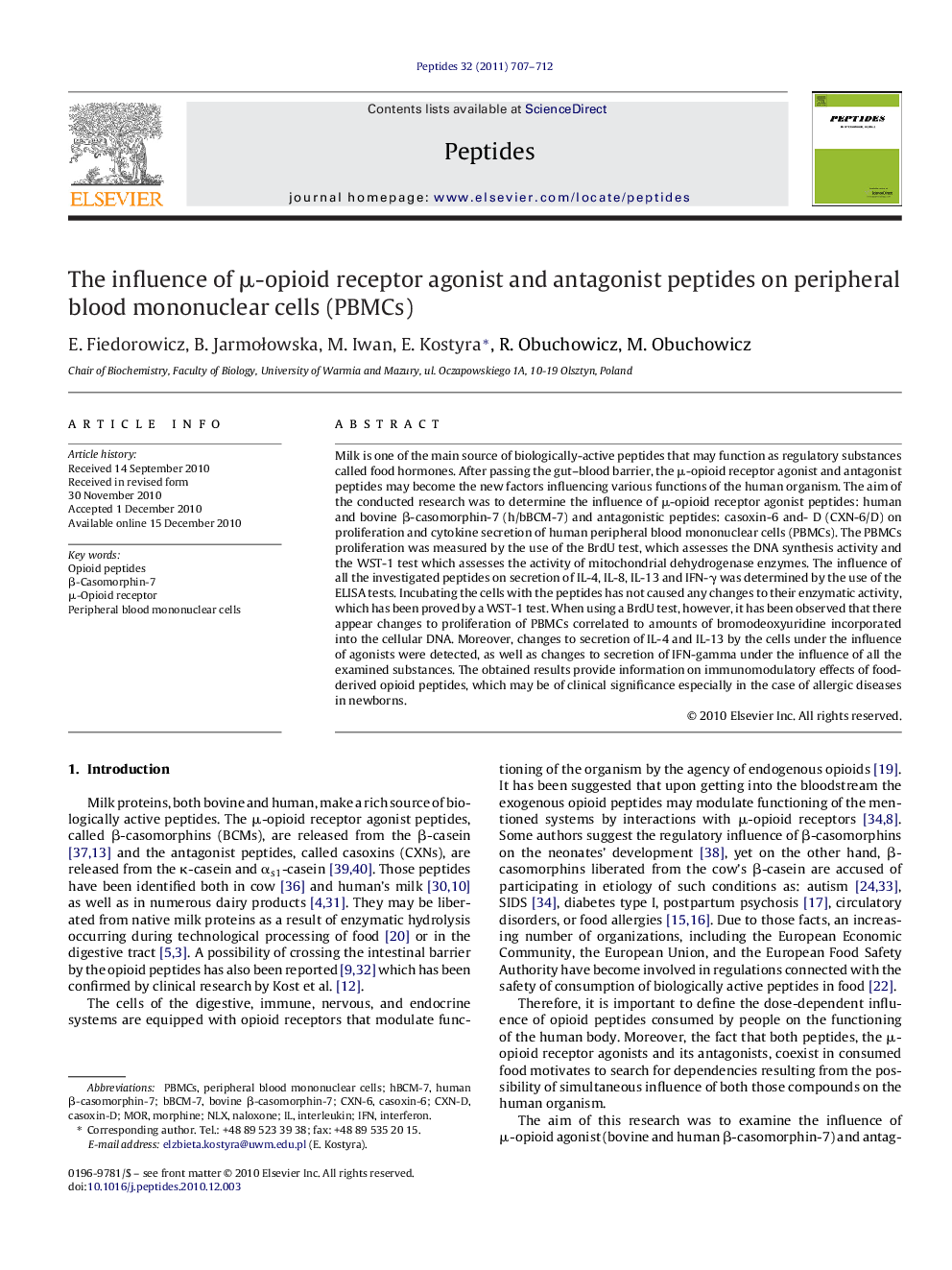| Article ID | Journal | Published Year | Pages | File Type |
|---|---|---|---|---|
| 2006653 | Peptides | 2011 | 6 Pages |
Milk is one of the main source of biologically-active peptides that may function as regulatory substances called food hormones. After passing the gut–blood barrier, the μ-opioid receptor agonist and antagonist peptides may become the new factors influencing various functions of the human organism. The aim of the conducted research was to determine the influence of μ-opioid receptor agonist peptides: human and bovine β-casomorphin-7 (h/bBCM-7) and antagonistic peptides: casoxin-6 and- D (CXN-6/D) on proliferation and cytokine secretion of human peripheral blood mononuclear cells (PBMCs). The PBMCs proliferation was measured by the use of the BrdU test, which assesses the DNA synthesis activity and the WST-1 test which assesses the activity of mitochondrial dehydrogenase enzymes. The influence of all the investigated peptides on secretion of IL-4, IL-8, IL-13 and IFN-γ was determined by the use of the ELISA tests. Incubating the cells with the peptides has not caused any changes to their enzymatic activity, which has been proved by a WST-1 test. When using a BrdU test, however, it has been observed that there appear changes to proliferation of PBMCs correlated to amounts of bromodeoxyuridine incorporated into the cellular DNA. Moreover, changes to secretion of IL-4 and IL-13 by the cells under the influence of agonists were detected, as well as changes to secretion of IFN-gamma under the influence of all the examined substances. The obtained results provide information on immunomodulatory effects of food-derived opioid peptides, which may be of clinical significance especially in the case of allergic diseases in newborns.
Research highlights▶ All examined peptides caused no significant changes to PBMCs proliferation measured by the enzymatic activity of the cells in the long-term incubation. ▶ Amounts of incorporated BrdU reveal a stimulation of PBMCs proliferation by bovine and human β-casomorphin-7, which indicates a short-term influence of opioid peptides on PBMCs. ▶ The μ-opioid receptor agonist peptides were found to cause a significant increase in IL-4 secretion, an insignificant increase in IL-13, and a decrease of IFN-γ secretion, which suggest an activation of the Th2 pathway.
